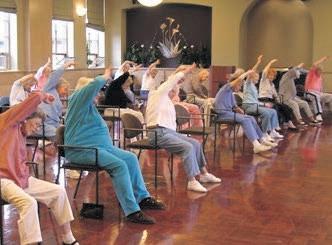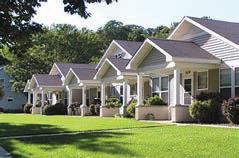
6 minute read
John Ellis
How choices we make impact on the world
BY JOHN ELLIS
Advertisement
FINANCIAL ADVISOR
IN a pdf that arrived on my computer recently an insurance company said: “ e challenges we face as a global society have never been so visible and within our control.”
Insurance companies in the main have been asking themselves, what can we do to take more responsibility in tackling our biggest challenges such as climate change, inequality and how can we grow our investments while dealing with unsustainable production and consumption? ey seem to agree that the rst step must be to acknowledge that the choices we make a ect not only our investment returns but the very world we live in.
In the past couple of decades some insurance providers issued what was called an ‘ethical fund’. is fund excluded certain sectors and industries, removing so-called ‘sin’ stocks from their funds.
But when these funds were presented to clients the rather basic approach was o -putting as the process in some cases did not speci cally consider performance or investment returns as a driving part of the investment process. And as all investors know investment performance is the reason for investment.
Along comes the Environmental, Social and Governance (ESG) investment philosophy – whereby sustainable investing is promoted so that you can align your values with your nancial goals, thus helping to bring about a brighter future for the world.
Using the ESG approach investment providers and investors look closely at three areas–
Environment issues. What’s the company’s impact on the environment, among others how much energy it uses, carbon emissions, fossil fuel exposure and waste levels?
Social Issues. What’s the company’s relationship with its employees, employees’ wellbeing, gender diversity, due diligence over human rights and even suppliers’ relationships?
Governance issues. Who’s running the Company, how is it managed, what is its corporate outlook, how are its nances managed? What is the company’s record on exposure to corruption, bribery or other scandals and its approaches to salaries and strategies?
Again, the misconception arises that to be a responsible investor you must sacri ce returns or the fund in question will underperform the market.
According to Aviva Investors though, there can and will be periods of underperformance of an ESG fund when compared to its standard counterpart. Taking the recent asset allocation of the UK equity market as an example, it is heavily weighted to the tobacco, oil, and mining sectors with companies such as Shell, Rio Tinto, British American Tobacco accounting for over 25% of the index, these are companies that tend not to score highly from an ESG perspective.
If you have a period where these types of stocks perform well ESG funds which may hold little or no weight in these Companies will underperform the broader index
But, according to a report issued by Bank of America Merrill Lynch Research issued in 2019 covering the period 2005 to 2015, it was found that ESG analysis could have helped investors avoid 90% of company bankruptcies that occurred within the S&P 500; 15 out of 17 company bankruptcies during this period involved companies with poor ESG scores over the previous ve years.
As investing involves not only making money but keeping your initial capital the sensible conscientious route seems to be do your due diligence with the help of your nancial advisor and make SEG funds a bigger part of your investment portfolio into the future.
* john@ellis nancial.ie. 0868362633
Community Group
IN last week’s edition we spoke about the Housing Adaptation grants for our Seniors. We believe in our Seniors staying in their home they have raised their families in and have memories through the years that cannot be replaced by ones in the new communities we think they should ‘right size too
We are all better served by remaining in our local communities, with our friends and community support structure, trust and friendships built over many years, sometimes decades of living, working in your local community. e Twilight Community group is a fair and balanced inclusive group, therefore, we must also show the bene ts that were highlighted in a recent review conducted by the Health Research Board (HRB) is new evidence review explores the perspectives of older people from around the world on housing with support and examines the impact of this kind of housing on their well-being e review will support development of a policy framework for housing for older people in Ireland, which is being jointly developed by the Department of Health and the Department of Housing, Local Government and Heritage.
Housing with support refers to non-institutional accommodation where older people have their own front door and access to support or care services, with the aim of providing independent, accessible housing options that can improve quality of life. e implementation of this kind of housing has been rapidly expanding in recent years – a trend that is likely to intensify in the context of COVID-19, which has made clear the risks of relying primarily on nursing homes.
Key ndings from the international evidence review include:
Individual choice and autonomy are important for successfully transitioning to housing with support. e change is made easier where the housing location allows older people to maintain their existing social networks.
While personal care and support services are a key aspect of housing with support, opportunities to socialise are also essential for well-being. e report ndings are brought together in an aspirational model of housing with support that will inform future policy, with the aim of improving quality of life for older people.
Age Friendly Ireland has supported the development and implementation of the joint departmental policy document ‘Housing Options for an Ageing Population’ 2019 (DHPLG and Department of Health). is is a new policy that aims to put more housing choices in place for people as they age. A key principle underpinning Government housing policy is to support older people to live in their own home with dignity and independence for as long as possible. e aim is to ensure that older people will have greater choice by developing a range of housing options that are suited to their needs, so they can plan and, insofar as possible, choose the right home for them.
In response to Action 4.13: ‘Local Authorities will identify and assign an individual on their housing teams to work with older people in terms of sourcing appropriate accommodation’, all local Authorities have assigned a sta member to undertake the role so that we will have this resource available in all the 31 local authorities across the country.
So in conclusion we can see the e orts to get the housing for seniors to the highest of standards possible. We can adapt our current homes and remain within our own community and neighbourhood?, or we can build purpose-built senior ‘villages’? where, we can live our lives out in dignity and happiness
What is the better option? Honestly, whatever is the best for your family but most importantly, your happiness











